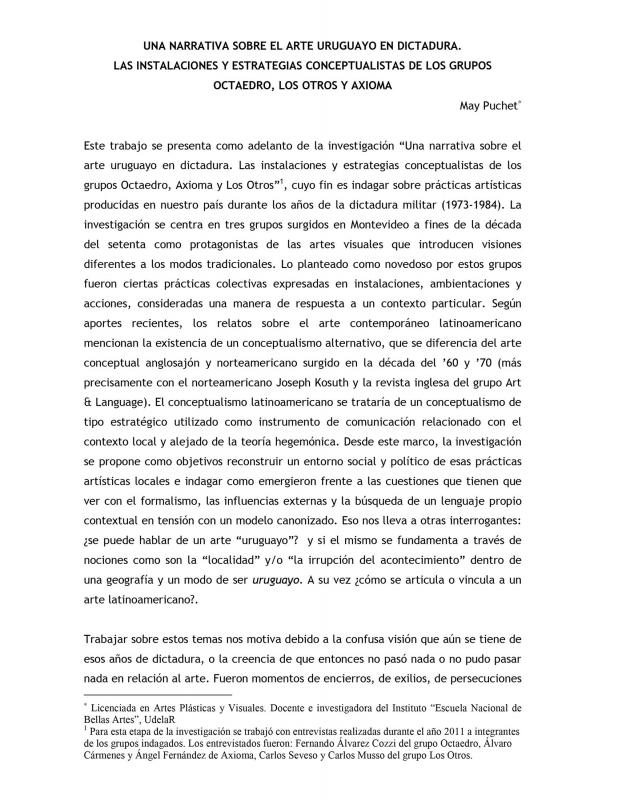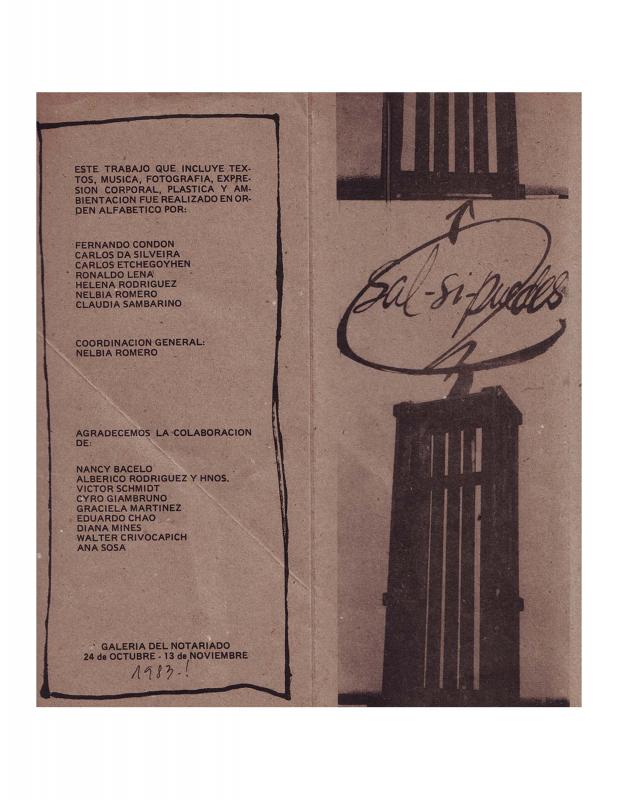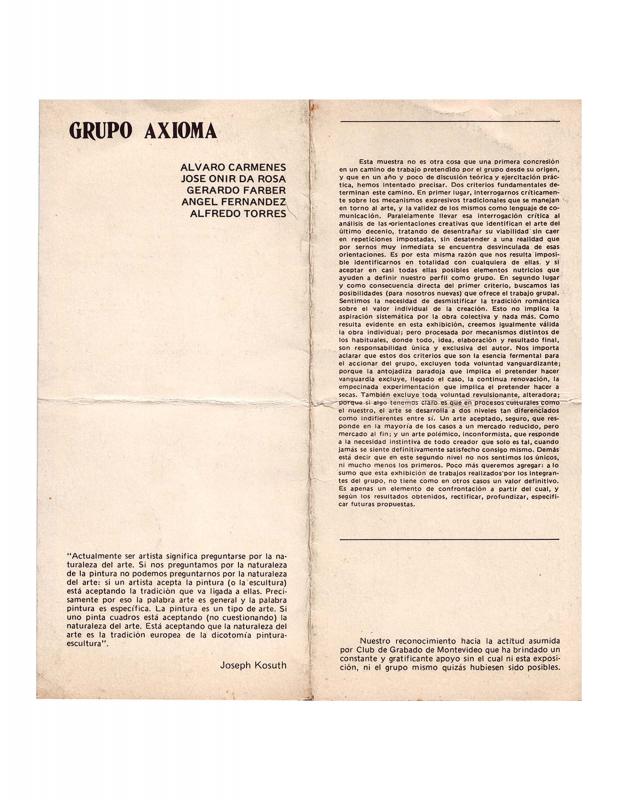The group Axioma was formed by Álvaro Cármenes (b. 1954), José Onir da Rosa (b. 1953), Gerardo Farber (b. 1954), Ángel Fernández (b. 1945), and Alfredo Torres (b. 1941). The paragraphs transcribed in the catalogue are the only written content and are text quotations that pertain to Abelardo Villegas (1934–2001), Vicente Aguilera Cerni (1920–2005), Pierre Restany (1930–2005), Jorge Glusberg (1932–2012), and to José Benedito Fonteles (b. 1953). They were presented as theoretical references from the group’s artistic proposals. The chosen fragments appealed mostly to the artist’s commitment to his historical present, the need to break away from intellectual isolation, from secretive groups, and from the separation of life and art, which included Fonteles’s vision in defense of environmentalism. They also appealed to the permanent validity of change, to the need of demystifying the artistic gaze, to the recognition of a valid Latin American past that promotes artistic creativity outside of the purely imitative that would not stimulate isolationism. Referencing “speaking for others” was also explained as a political moment in Uruguay’s history when the voice of the public was being restricted and commitments were too individualized. So, it can be said that the selection of texts could be interpreted as a declaration of principles by the Axiom group itself that were codified in an indirect way. [Please refer to ICAA digital archive for the following texts: “Una narrativa sobre el arte uruguayo en dictadura. Las instalaciones y estrategias conceptualistas de los grupos Octaedro, Los Otros y Axioma,” by May Puchet (doc. no. 1251139), “Sal-si-puedes” (unsigned) (doc. no. 1250634), and “Grupo Axioma,” by Álvaro Cármenes, José Onir Da Rosa, et. al. (doc. no, 1250744)].



